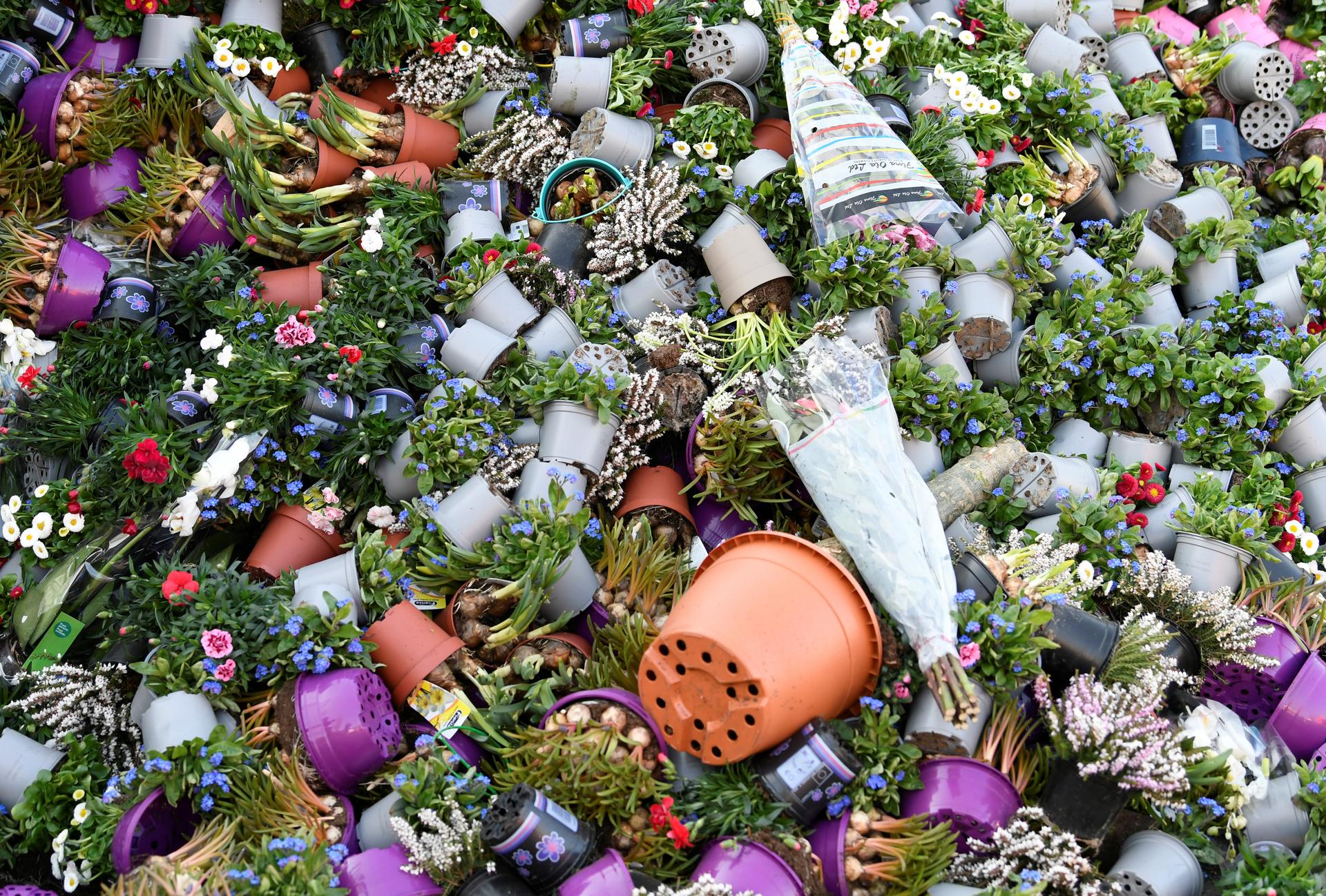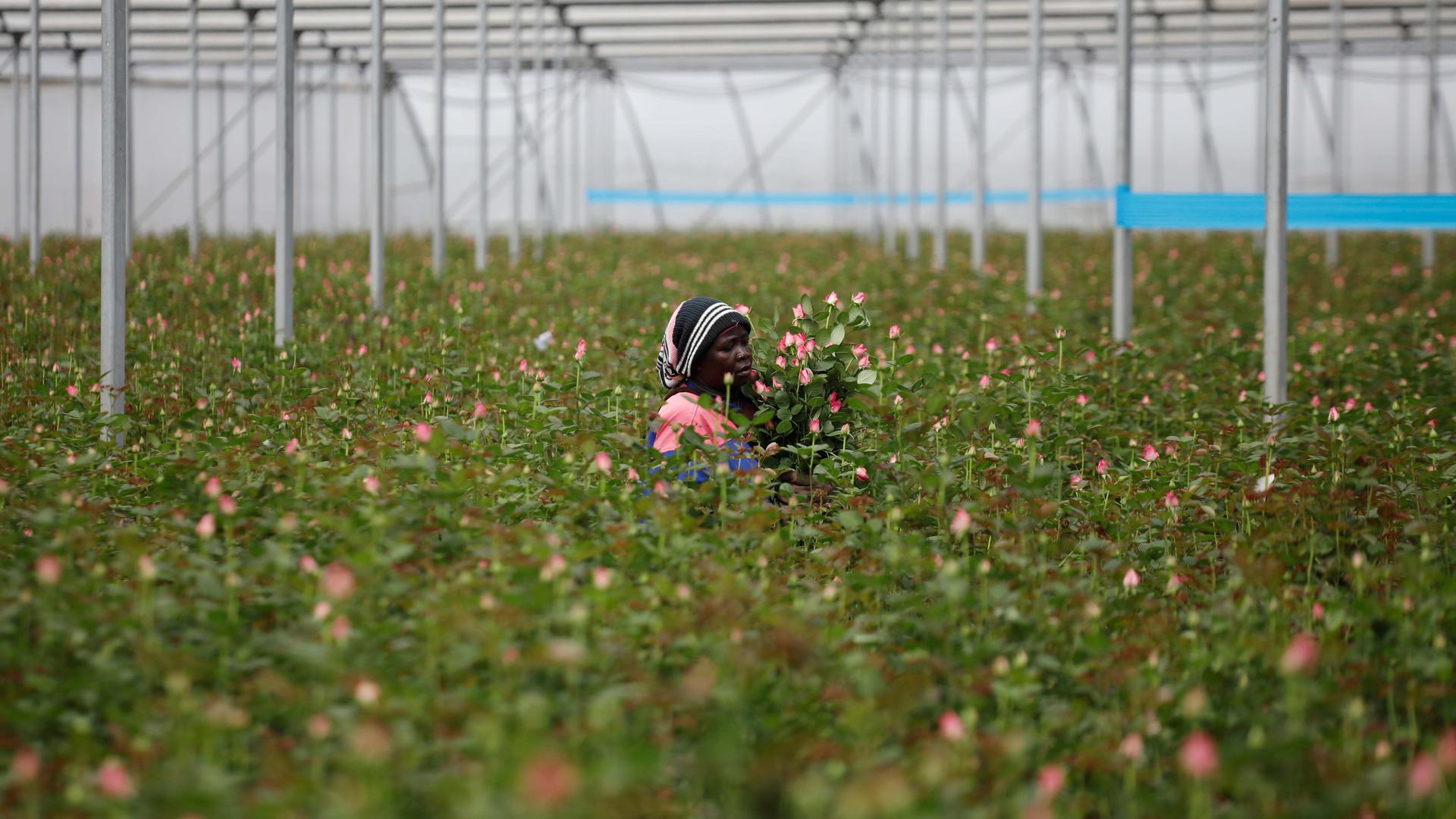Mother’s Day, May 10, is a big day for moms — and a huge business day for the flower industry.
But this year, with florists closed and countless special events canceled worldwide, things are a little different.
The coronavirus pandemic is taking a heavy toll on the $8.5 billion global industry in cut flowers. It’s affected businesses and people at every stage of the global supply chain, from lily fields in Colombia to tulip auctions in the Netherlands.
It’s also hurting Kenya, the world’s third-largest exporter of cut flowers. Kenya supplies nearly 40% of flower sales in the European Union. In normal times, horticultural exports bring in hundreds of millions of dollars annually to the Kenyan economy.
“This pandemic has hit our industry very heavily,” said Fiona Coulson, the co-owner of Nini Flowers, a brand that encompasses two flower farms in Naivasha, Kenya, and supplies flowers to supermarkets throughout Europe.
Related: COVID-19: The latest from The World
Coulson said an influx of Mother’s Day orders has helped temporarily. But overall, she’s seen a marked drop in business since coronavirus shutdowns.
“We’ve been up to about 85% on our usual orders [for Mother’s Day] so we can’t complain about that. But prior to that we had dropped to roundabout 55% of our normal orders, and after Mother’s Day we’re expecting the demands to go right back down again,” she said.

Cut flowers, of course, are perishable items. Sellers must often throw away whatever they cannot sell relatively quickly. In the Netherlands, a hub of the global flower industry, 400 million flowers have been destroyed in the last few months, including 140 million tulip stems.
Coulson says that’s true for her business, too.
“Up until the Mother’s Day orders, we were throwing about 40% of our production away. That’s devastating.”
“Up until the Mother’s Day orders, we were throwing about 40% of our production away,” she said. “That’s devastating.”
The pandemic hit at the worst possible time for the flower industry. Spring is usually a busy period: It’s the start of wedding season, and it’s marked by holidays like Easter and Mother’s Day. By early March, big orders have already been placed for flowers that are grown and ready to ship. But this year, demand among buyers has collapsed.
Coulson says Nini Flowers’ farms have had to cut back on hours for employees, but that the company has still been able to provide workers with a housing allowance and essential food supplies.
“We’re trying in every possible way we can to keep people going,” she said.
Coulson says she thinks the downturn in business will cause the flower industry in Kenya to change “quite significantly, relatively quickly.”
“I think we’re going to see a lot of consolidation of flower farms in Kenya and I think the smaller farms are going to be gobbled up by the larger farms,” she said. “People were already discussing all of this but I think this pandemic means we’re going to have to actually start doing this much, much sooner to survive.”
